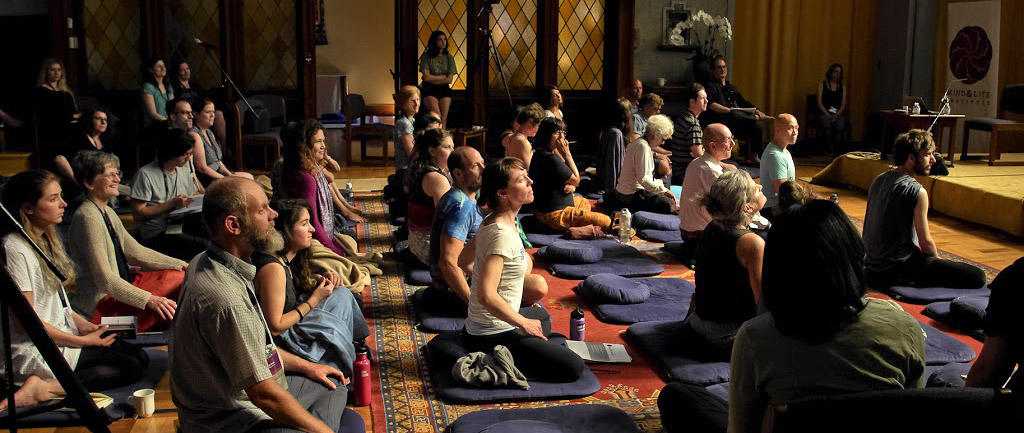The Mind & Life Summer Research Institute at Garrison

The Mind & Life Institute continues the tradition of hosting its signature program, the annual Mind & Life Summer Research Institute (MLSRI) at the Garrison Institute every year in mid-June. Over the course of a week, a community coalesces. In a rich and intimate retreat-like setting, together we dive deeply into a theme related to contemplative studies. With a broad range of disciplinary backgrounds, seasoned scholars, scientists, practitioners, and professionals involved in applied fields join those who are in formative stages of their training and careers. We share and listen, explore different paradigms, challenge our assumptions, and stretch our perspectives. We engage in contemplative practices firsthand: meditation, yoga, and T’ai Chi are woven into each day, and we engage in a full silent day of contemplative immersion midway through the program. Overlooking the Hudson River, the beautiful grounds and grand stone dwelling of the Garrison Institute provide the perfect setting to foster both conversation and quiet reflection. At the end of the week, we go forward with new ways of thinking and being, and with new connections and collaborations to inspire and transform our work in the academy and in the world.
The 13th annual MLSRI, entitled People, Place, and Practice: Putting Contemplative Studies into Context, took place from June 11-17, 2016 and brought together a diverse group of over 120 participants from six continents, 15 countries, and 22 states. Along with more than a dozen distinguished scholars in the field, we explored the important topic of “context” and its relevance to contemplative studies. This issue is especially timely as mindfulness and other contemplative practices burgeon in our society and globally. Deeply rooted religious or contemplative practices had specific meanings in traditional cultures, but how do they translate when disseminated into new cultures and practiced in mainstream settings? Equally important, what are the ethical implications of this dissemination? And as we know that context shapes the mind in many ways, how can we best study these practices in new contexts?
Over the course of the week, we heard important perspectives from leaders in social sciences and philosophy, religious studies and neuroscience, clinical research and social justice. Major themes included the need to extend our conception of “mind” beyond just the brain, and to find ways to carefully measure the impact of important contextual variables related to contemplative practice, including social structures, physical environment, developmental factors, whole-body systems, and cultural dynamics. We also had rich discussions around an important and often overlooked context: diversity and inclusion within contemplative studies. And as always, we were pleased to be able to highlight the latest research from several of our Mind & Life Varela Grant recipients who are studying how contemplative practices impact the mind-body-behavior continuum. But perhaps most importantly, amid the rich intellectual discussions, deep bonds of connection were formed.
Throughout the week, long-time participants could sense that the field of contemplative studies is maturing, and a new generation of scholars is emerging. There is fresh energy around the questions of how to integrate first-person perspectives into rigorous research, how to extend our concept of mind, and how to apply our work in the world in the most beneficial ways. For many participants, this was their first exposure to the Mind & Life community. We are thrilled to witness the ongoing expansion of this field and to continue to serve as a home for people from so many academic and personal backgrounds.
In the words of one of this year’s participants, “The week was nourishing both intellectually and emotionally, and has allowed me to take some of what I have learned, and what has inspired me, back to my home [in Africa].” We look forward to connecting once again at the Mind & Life Summer Research Institute at the Garrison Institute next summer.
Susan Bauer-Wu, PhD is the President of the Mind & Life Institute.
Wendy Hasenkamp is the Science Director of the Mind & Life Institute.
This article was originally posted on the Garrison Institute blog »

